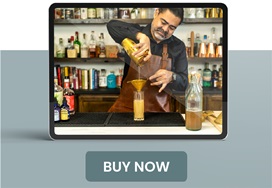Tyler, a reader from Baltimore, recently experienced this same dilemma at his work, and reached out to us for our thoughts:
Question from Tyler:
Hey guys! I recently became a bar manager at a nice spot in Baltimore. The bar program is shifting from beers-and-shots to a craft program so they brought me aboard. It’s a relatively small operation and I’m basically working at a bartender’s rate plus tips. (Getting a higher hourly for things like training etc.) I wrote a new cocktail menu for autumn and the owners love it. It’s got eight cocktails and a few mocktails as well.
Here’s my question: Do I charge them for the menu? What is the average cost of writing a cocktail menu of this size? Is there a trick to pricing out my compensation, if any? Thanks!
It’s a great question! You put a lot of work into the menu and you deserve to be compensated. But how? And how much? Here’s our reply:
So what’s the answer? Should Tyler be compensated?
First and foremost, cocktail menu creation is typically considered “part of the job” for a bar manager. As such, your management / owners may be expecting you create cocktail menus as part of your current position. The most important thing right now is clear communication and building trust with the management team.
Consider setting up a candid conversation with your manager to understand what their expectations were. You mentioned you are paid hourly – no matter what, I think it’s more than reasonable to ask for hourly compensation for the time you worked on the menu. To be paid more than that, it’s just going to have to be a conversation with your manager. Either way, building the menu is a great learning experience and an opportunity for you to set expectations differently for next time.
When Chris was in a similar position, he negotiated a higher hourly rate than the standard “bartender” rate, which compensated him for the management responsibilities he had. Then, when he was working on cocktail menus, he would simply clock in and log the hours to get paid for his time.
How’d it go with Tyler?
A few weeks after our reply, we heard back:
“Hey guys, just a quick update. I spoke with the restaurant owner and we’ve come to the agreement that my Tuesday day shift will be at a higher hourly, and I can use it to do managerial work.”
Communication is Key
As with many situations regarding pay, the key is communication.
Wherever possible, set expectations in advance – and if you find yourself in a situation where you’re just not sure how you should be compensated, find the time to get in front of the manager and (respectfully) ask. They will almost certainly appreciate you taking the initiative, rather than you going unpaid or feeling as though you’ve been underpaid for your work.
Remember: your manager wants to keep you around! There’s nothing wrong with helping them do so by letting them know what’s concerning you.




